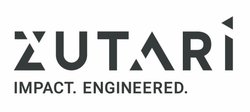The role of the private sector in affordable housing
Affordable housing remains a complex challenge, with varying interpretations of what ‘affordable’ actually means. According to the World Bank, housing is considered affordable when it costs below 30% of the average household income. In South Africa, the term often invokes thoughts of government-subsidised housing, notably the Reconstruction and Development Programme houses and its successor, called Breaking New Ground.
Affordable housing initiatives span a spectrum of models, from Informal Settlement Upgrading (UISP) and site-and-service provision to ownership models like RDP and first home finance (formerly FLISP). Social housing, a privately owned and subsidised rental housing option, along with public housing and community rental units (CRUs), further diversify the landscape of subsidised housing.
Amidst this complexity, the private sector plays a pivotal role in developing affordable housing and introducing innovative models like sub-market rental and subsidised social housing. Affordable housing, considered a crucial element of economic redress, is a public good when it provides safe, good-quality housing. It provides the foundation for upward mobility and contributes to positive urban environments.
Private sector involvement brings its typical advantages, but some challenges need careful consideration. The grant-based nature of subsidies, particularly those directed to Social Housing Institutions (SHIs) for project capital finance, may inadvertently disincentivise comprehensive asset renewal budgeting. Without a viable exit strategy or a larger share of liability for developers, there is a risk of social housing projects falling into a state of disrepair once the capital commitments (sometimes as low as 30% of total development cost) have been met.
Addressing these challenges requires innovative solutions, especially as South Africa – which is not considered a poor country – therefore has limited access to impact finance focused on social initiatives. However, there is far more green impact finance available from investors with an appetite to be become involved in South Africa.
The refurbishment of existing housing stock aligns with green principles, as it is inherently more sustainable than the construction of new structures. Infill design, a strategy that enhances urban density and reduces pressure on infrastructure networks, can further contribute to environmental and social sustainability.
The private sector, equipped with its efficiency and innovation, can play a transformative role in reshaping the landscape of affordable housing. Collaboration between public and private entities is essential to navigate the intricate challenges the housing backlog poses and create resilient infrastructure for future generations.
As we strive for economic redress and equitable access to housing, it is crucial to leverage the strengths of the private sector while mitigating the risks associated with subsidy-based models. By doing so, we can pave the way for sustainable, affordable housing solutions that address both the immediate backlog and future challenges. The success of subsidised housing lies not only in its provision but in its ability to endure and adapt to the evolving needs of our communities.
Zutari’s Infrastructure Advisory Team attended two housing conferences in November 2023. The 8th Annual Affordable Housing Africa conference held in Cape Town saw specifically DFIs and private developers in good attendance. The session also concluded with a masterclass on PPPs in affordable housing. Zutari presented two case studies, contrasting insights from the teams working with the City of Cape Town’s Public Housing Department and insights from providing lenders with technical advisory services for social housing developments.
The 39th annual African Union for Housing Conference saw housing practitioners from Africa come together to discuss the theme ‘Affordable Housing on the Front Lines: Cases from the Continent’, which shone the spotlight on affordable housing finance. Policymakers, government officials, bankers, fintech and developers were in attendance. Zutari highlighted its research around the realities of private sector involvement in State-provided rental housing, using the City of Cape Town’s Public Housing Department as a case study.
Ends
Notes to the Editor
To download hi-res images for this news article, please visit http://media.ngage.co.za and click the Zutari link to view the company’s press office.
About Zutari
As an infrastructure engineering and advisory practice, we believe infrastructure has unparalleled potential to create enduring impact. Never more relevant, this potential can be realised only if we plan, design, deliver, and manage infrastructure in ways that maximise its value. Our work in water, transport, energy, resources, and built-environment infrastructure does just this – helping to nurture thriving communities, growing economies, and healthy environments. At Zutari, we understand that radical impact does not just happen; it requires more of us to connect differently, work smarter, and stay rooted.
We connect differently. Our broad collective of in-house experts connects across traditional disciplines to provide integrated results. We collaborate with clients, partners, and end-users, leaning into diverse perspectives to create superior solutions - together.
We work smarter. Our people lead the industry. We draw from deep technical skills, accrued over decades, and embrace the transformative power of digital technology to find simpler, better, and more innovative ways to deliver value.
We stay rooted. Few can rival our local capacity and understanding. Building on solid foundations, now 90 years in the making, we are trusted to shape locally relevant solutions through our extensive footprint in Africa and the Middle East.
At Zutari our people connect differently, work smarter, and stay rooted. Working in this way, we reliably deliver impact through infrastructure, making the world a better place – one project at a time.
Zutari Contact
Malebusa Sebatane
Marketing & Communications Manager
Zutari
Tel: (012) 427 2000
Email: Malebusa [dot] sebatane [at] zutari [dot] com
Media Contact
Rachel Mekgwe
Senior Account Executive
NGAGE Public Relations
Phone: (011) 867 7763
Cell: 074 212 1422
Email: rachel [at] ngage [dot] co [dot] za
Web: www.ngage.co.za
Browse the NGAGE Media Zone for more client news articles and photographs at http://media.ngage.co.za

